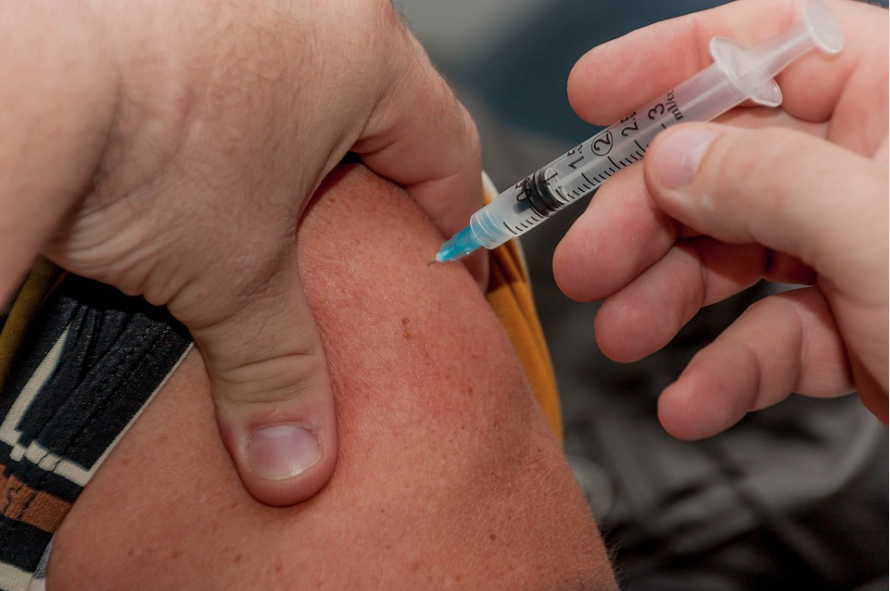The pandemic caused by COVID-19 has been going on for a year and a half at this point. While there are still new cases being reported, there is now a silver lining in the form of multiple vaccines that are being administered globally.
That said, it’s important to take note of the possible side effects from the vaccines like headache, fever, swollen lymph nodes, muscle pain, itchiness and generally feeling unwell. Such side effects may affect your daily activities but should go away in a day or two. One common side effect is arm pain and swelling. The pain in your arm is your immune system’s response to the vaccine, causing inflammation. If you’re scheduled to be vaccinated soon, here are seven ways to help relieve any arm pain and swelling after getting your vaccine.
1. Decide which arm will receive the injection
If you’re about to take the vaccine, take into account which arm will be receiving the shot. Typically, it’s best to receive the shot on your non-dominant arm. This will make it easier for you to move around even when you start experiencing pain in your arm. You should also consider which side you sleep on. Make sure to pick the side you’re most comfortable with.
2. Don’t tense your arm
While getting the shot, avoid tensing your arm and muscles. Keep them relaxed by your side in a neutral position, as this should help with the pain. Tensing your muscles would make it highly likely for you to experience swelling or inflammation after getting vaccinated. Make sure you are relaxed before getting the shot.
3. Apply ice compress right after
If your arm starts to feel sore after the vaccine shot, you can apply a cold compress to help reduce the swelling caused by the inflammation. If you don’t like ice, you may use a hot compress instead. This can also help soothe the swelling in your muscles.
Have these Rester’s Choice Gel Cold & Hot Packs from Amazon handy. Flexible and affordable, this two-pack comes with reusable gel packs that you can either warm or put in the freezer for quick pain relief.
4. Move your arm
Another thing you can do is keep your arm moving through exercise or simple arm movements. Such exercises include:
- Lateral deltoid raises
- Standing shoulder external rotation in 90 degrees abduction
- Overhead press
- Horizontal abduction with external rotation
- Standing shoulder external rotation with the arm at the side
- Arm stretches
Aside from these exercises, you can also use arm equipment like this UB-Toner from Amazon, which exercises your arms and helps you improve your posture and sculpt your muscles. These affordable Fit Simplify Resistance Exercise bands are also perfect for home workouts and you can keep using them long after the swelling in your arm goes away. It includes an instructional video and a carry bag. However, make sure that you don’t exhaust your arm. Always remember that moderation is key.
5. Take over-the-counter medication
To help ward off the soreness in your arm and reduce any swelling, take over-the-counter pain medication like acetaminophen and ibuprofen about an hour or two after you get your COVID-19 vaccine shot. Timing it like this would help maximize the efficacy of the medicine right as your arm starts experiencing the side effect.
As for where to get pain relief medication, we recommend Cabinet. Providing high-quality and fairly priced medicine delivered straight to your doorstep, Cabinet’s selection is by physicians and pharmacists to ensure you only get the best. If you’re experiencing arm swelling, you can choose from Cabinet’s Acetaminophen, Ibuprofen and aspirin.
6. Get sufficient rest
The easiest way to help treat any vaccine side effect is to get sufficient rest. Once you’re done stretching and taking medications, it’s important to get the right amount of sleep during your downtime. In the first few days after getting the shot, you should avoid staying up late, as exhaustion may only worsen the side effects you’re experiencing.
Doing so will not only lessen side effects but also help start a healthier sleeping habit that will benefit you in the long run.
7. Apply a CBD product
CBD, which is an oil derived from the cannabis plant, has gained popularity as an alternative to over-the-counter medication thanks to its pain relief properties. This is why athletes and gym-goers use it after practice or workouts.
If you want to try a high-quality CBD product to help soothe the inflammation on your arm, CBD For Life’s Vanilla Rub is an excellent choice. Powered by essential oils and pure CBD, this fast-acting balm will help soothe muscle soreness and discomfort in a natural way. You can also try CBD For Life’s Tincture, which helps relieve discomfort and helps you feel calmer and more relaxed.






















